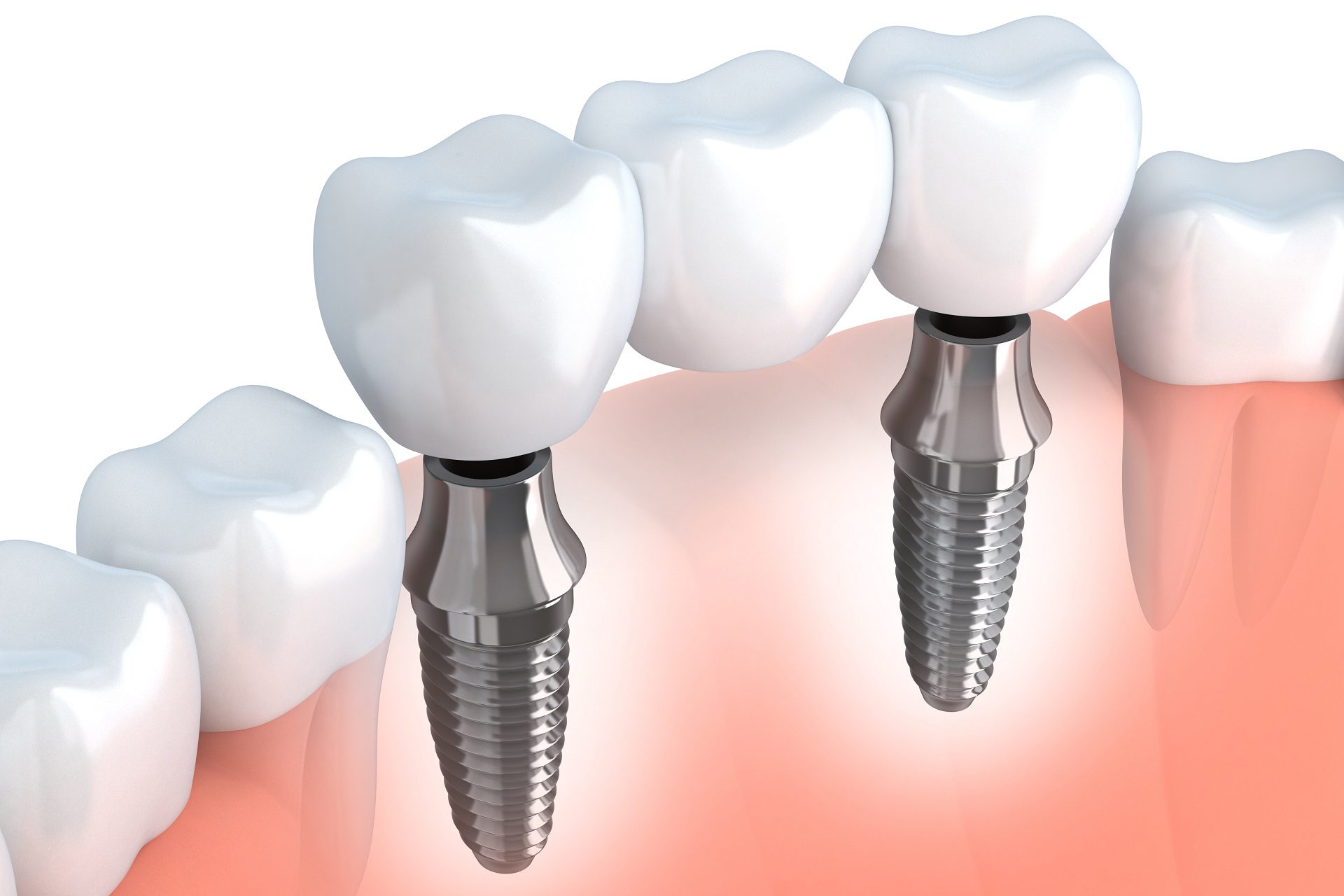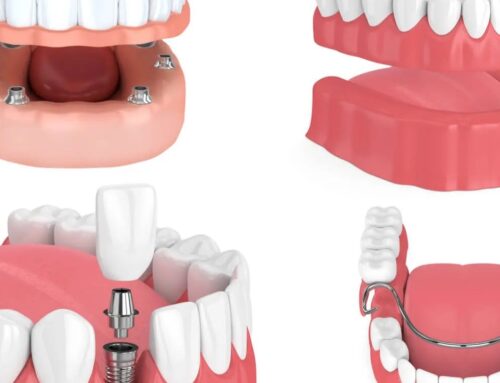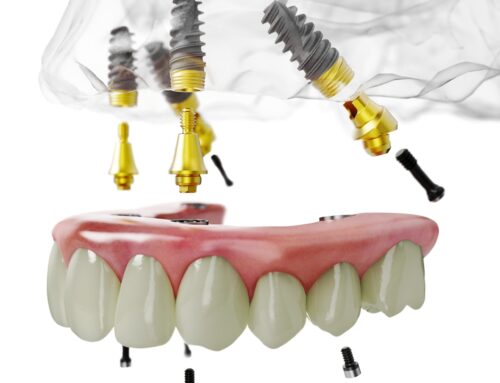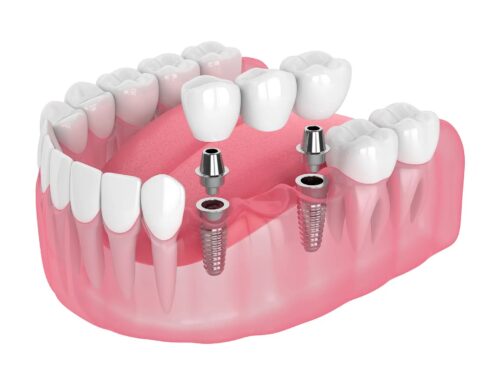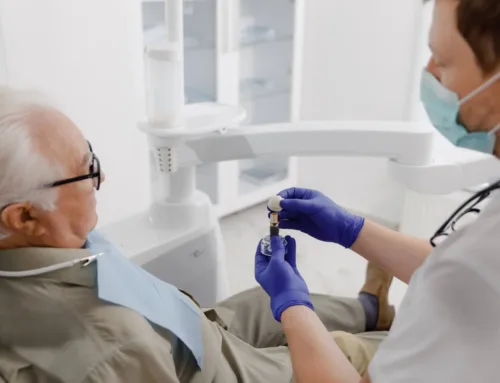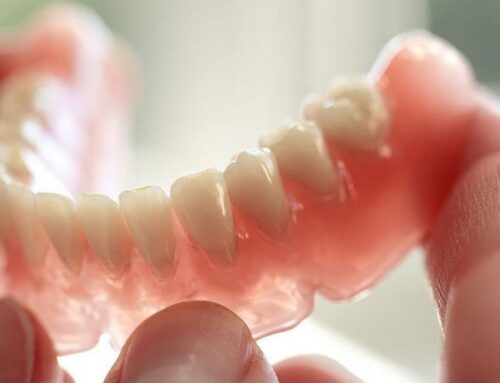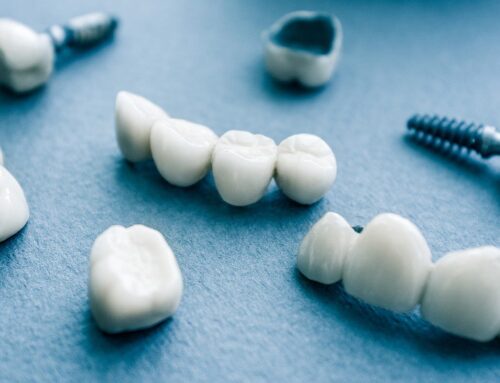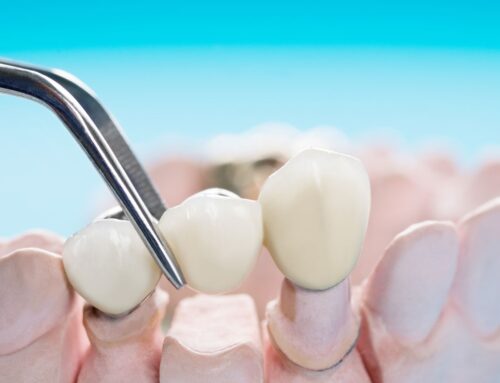How Bone Loss Affects Dental Implants
When a tooth is lost, the resulting effects can be far more than just an unsightly gap in your smile or discomfort when eating. The risk of bone weakening as a result of lost teeth is serious, and if left unchecked can cause significant health issues down the road. It’s very important to address lost or missing teeth promptly as part of a complete oral health care plan and understanding the process of bone loss helps reinforce the reasons why.
In this article, we’ll take a look at the basic principles behind bone development and explain how to promote strong and healthy bone growth. We will also explore the causes of bone loss, and how the loss of bone can greatly impact the effectiveness and viability of dental implants as a solution for missing teeth. Now, let’s get started.
What Makes Bones Strong?
In order to understand why bone loss occurs, it’s important to first understand how bones grow and become strong in the first place. There are many factors that contribute to the health and strength of our bones, many of which are within our power to influence with changes to our diets, exercise, and general lifestyle habits. Let’s look at some of the factors that go in to developing healthy and strong bones.
First and foremost, bone development relies heavily on several key nutrients such as vitamin C, calcium and vitamin D, vitamin K2 and trace minerals as part of our diets. Calcium is essential for developing the structure of healthy bones, while vitamin D and Vitamin K2 is an important part of what makes bones grow and also aids in the absorption of calcium in to the bones. It’s critical that your diet includes the recommended daily amounts of both calcium and vitamin D in order to promote healthy bone growth and development. These daily values typically hover around 1000mg of calcium and 500 IU of vitamin D for most people, but as we age the recommended daily values tend to increase in order to reduce the risk of osteoporosis and other bone conditions. Seek professional advice from your medical health advisor for the optimal dosing for those key nutrients.
In addition to the intake of essential vitamins and nutrients, regular exercise is crucial to developing strong bones. In particular, weight-bearing and resistance exercises are the best ways to improve the strength and health of your bones. Running, walking, weights, and many other vigorous exercises will help strengthen bones and improve your overall health and well-being.
Causes of Bone Loss
While it may seem simple enough to do the right things to produce healthy and strong bones, there are many potential causes of bone loss that you need to know. Some of these causes are entirely preventable, while others are able to be mitigated or reduced by taking some precautionary measures. Here are some of the common causes that are attributed to bone loss.
Age is the most common factor related to decreasing bone strength and density. As we age, our bodies naturally shift from constant bone building in our youth, to a more steady-state during early adulthood, and then gradually declines in bone health and density as we continue to age. In general, the human body typically achieves peak bone density around age 30.
Gender also plays a role in bone health, with women being more susceptible to early bone density decline than men. This is for two main reasons. First, women typically have smaller and thinner bones than men. Second, they also see a sharp decline in estrogen production as they age and progress through menopause. Estrogen helps to maintain bone density, and the sharp reduction in this hormone has negative effects on the bone health in women. These effects can often be reduced with medications that are designed to replace the supply of estrogen in the body, as well as with special supplements. It’s best to consult with your doctor before beginning any new regimen related to medications or supplements.
There are other factors that can impact our bone health that are preventable or avoidable. Smoking has negative effects on many aspects of the human body, including bone health. Excessive alcohol consumption can also cause a reduced ability of the bones to absorb calcium and inhibits the functions of vitamin D. A poor diet that does not meet the minimum recommended values of calcium and vitamin D is another preventable cause of decreased bone density, especially as we age.
Risks of Bone Loss with Missing Teeth
As it relates to your dental health, bone density is of critical importance in the event that you either lose a tooth or need to have one removed. Having strong, healthy bones in your jaw is a key factor in the viability of dental implants as an option to replace the missing tooth. Since dental implants are embedded in to the jaw and fused to the bone, a weak or decaying bone structure in the area of the implant can cause problems or prevent the implant from being a suitable option. For this reason, it is essential that a lost tooth is dealt with promptly in order to ensure that the bone is strong and healthy to accept the dental implant and replacement tooth successfully.
Once the tooth is absent from the jawbone, the bone surrounding the area where the tooth used to be will start to weaken over time. This area of bone is slightly different in composition than the rest of the bones in your body and has special properties that allow it to hold teeth securely in the jaw. As a rule of thumb, most dentists recommend that the implant procedure be done no more than one year after losing the tooth. Of course, the sooner the procedure can be completed, the better. At Georgian Dental® for most cases, we advocate for our patients to receive an immediate implant placement after a tooth is lost. There are several key benefits to this – most importantly of them is jaw bone volume preservation and reducing the number of repeated surgeries to a single are of the jaw and therefore reducing the potential for complications.
Bone Grafts to Repair the Jaw
In the event that bone loss has occurred in the area of the lost tooth, either through gradual decay or accidental damage to the bone, there is still a way to move ahead with dental implants once the bone is repaired. This surgical process is known as a bone graft and involves taking a healthy section of bone from another area of the body and transplanting it in to the space in the jaw that needs repair. Once the healthy sections of bone have successfully fused together and healed correctly, which can take several months after the surgery, the implant procedure to replace the missing teeth can be done.
Bone grafts are often used in cases where there has either been significant damage to the bone in the jaw, if the bone is determined to be too thin, or if there has been too much softening and decay of the jawbone to effectively support and secure the dental implant. Your dentist will perform an exam in order to thoroughly evaluate the best approach for a dental implant procedure and will determine if a bone graft is necessary or not to achieve a successful outcome.
Conclusion
If you are in need of a dental implant to replace a missing tooth, or perhaps several missing teeth, it’s of utmost importance that you consult with your dentist as soon as possible in order to minimize the potential risks of bone loss. The longer you wait to address the situation, the more likely you are to begin experiencing a loss of bone density in the area surrounding the missing tooth. While a bone graft is not always necessary to perform the dental implant procedure, starting the process as early as possible will ensure that you are presented with the most appropriate options for repairing and replacing the missing teeth.
Contact Georgian Dental® today to arrange your no-obligation consultation and learn how we handle bone loss and dental implants, the costs associated with both procedures, and how you can move forward to a better smile using dental implants.
We’re here to answer any of your questions and will be glad to explain all the options that you have available to you. We’ll help you Get Your Smile In Style!®
Appointment Request
If you’re interested in any of our procedures, and would like to meet with one of our dentists to discuss options, costs and get additional information, complete this short form and we’ll give you a call to arrange for a no-obligation appointment at our Barrie clinic.
